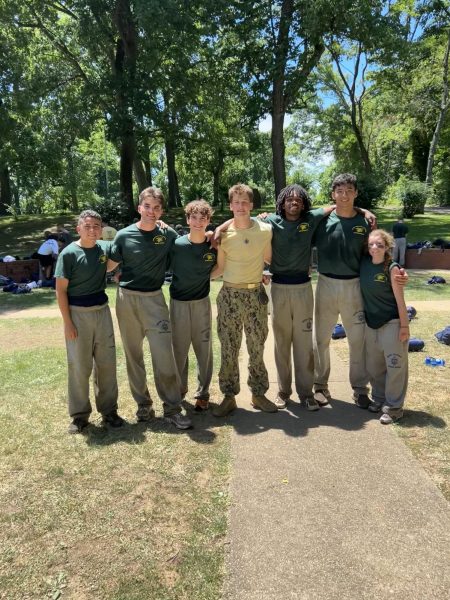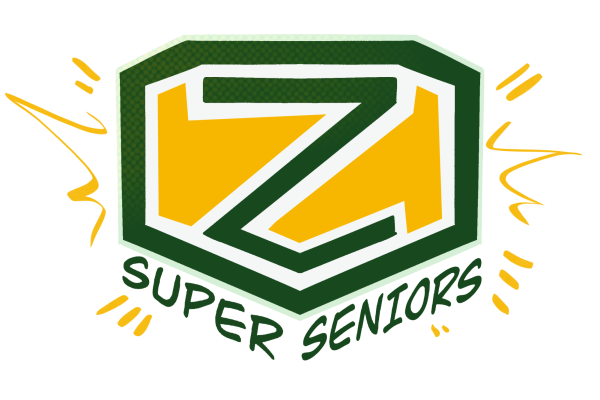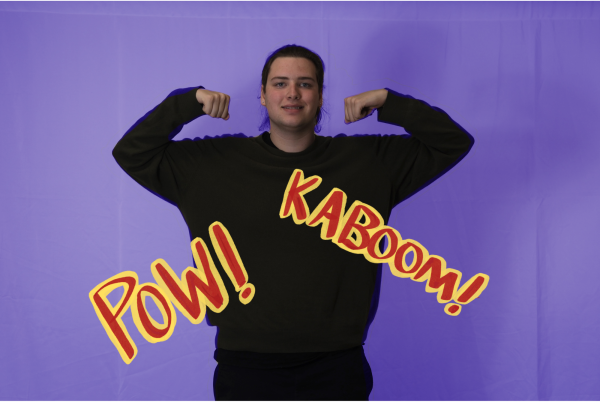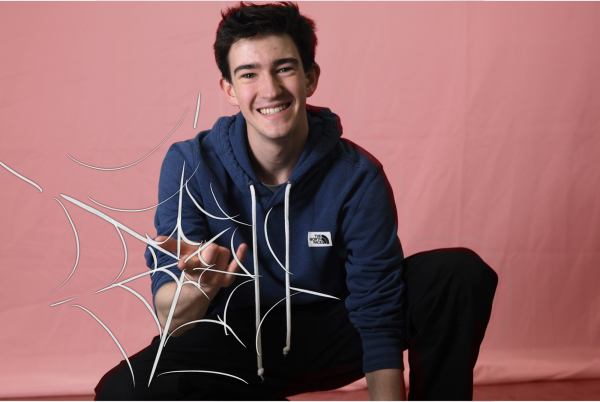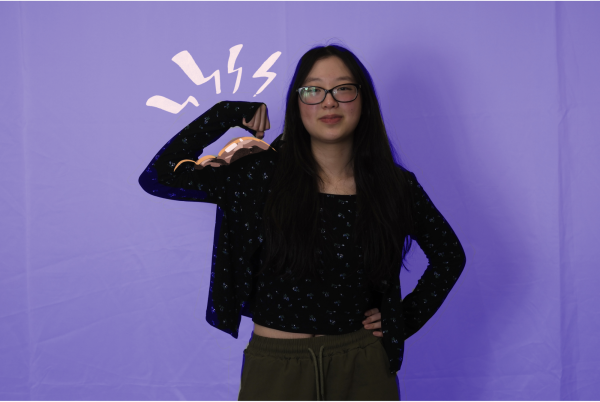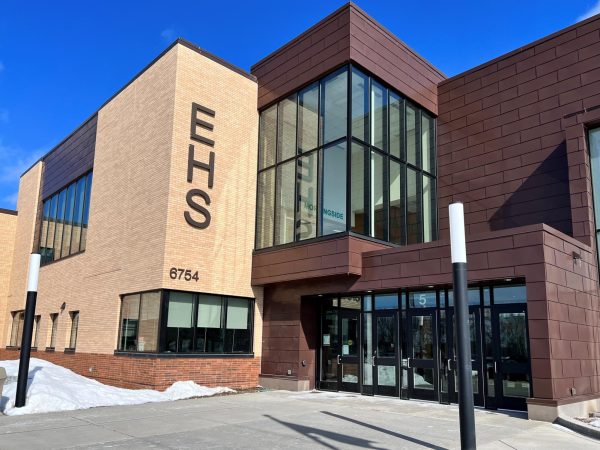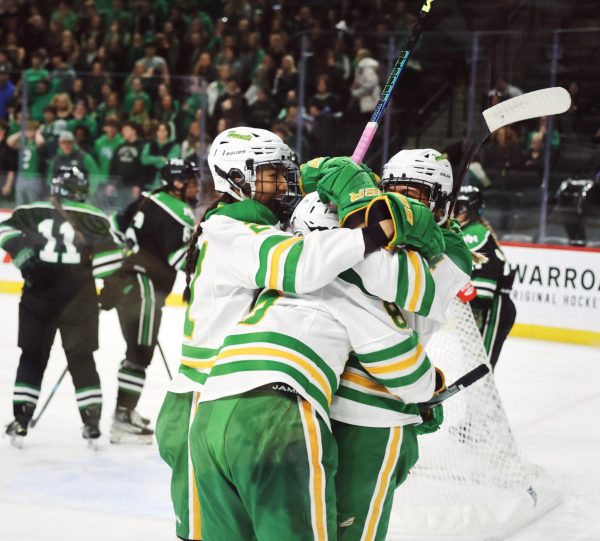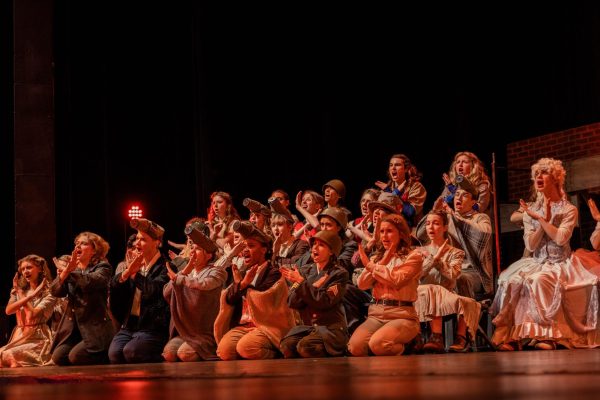EHS Teens Against Modern Slavery
The Twin Cities is one of the nation’s thirteen largest centers for child prostitution.
Twenty-seven million people around the world are currently victims of human trafficking, according to the United Nations. The UN defines human trafficking as “the recruitment, transportation, transfer, harbouring, or receipt of persons, by means of the threat or use of force or other forms of coercion, of abduction, of fraud, of deception, of the abuse of power, or of a position of vulnerability or of the giving or receiving of payments or benefits to achieve the consent of a person having control over another person, for the purpose of exploitation.”
“We are talking about the ability to buy and sell human beings,” explained Edina High School junior Katrina Weinert. “Anyone would agree that the practice of purchasing and selling a human being or exploiting one is not okay, no matter your perspective.”
In an effort to raise awareness and get involved, Weinert started a club at EHS called Against Modern Slavery, or AMS. She was prompted to take action after hearing Cambodian sex trafficking survivor and activist Somaly Mam speak about her experiences. “Her speech was so inspiring and immediately I wanted to learn more and do something about the issue…so junior year I started the club,” she said.
AMS meets every other Thursday after school in room 270 to discuss human trafficking’s pervasiveness in the international community as well as our own. “Most hear ‘human trafficking’ and think “Taken” or brothels in Southeast Asia. But it is a huge problem in the United States, and it’s happening to Americans, especially young American girls. What’s worse is that Minnesota has one of the worst track records in regard to this issue,” said Weinert.
In fact, the FBI has identified the Twin Cities as one of the nation’s thirteen largest centers for child prostitution. Authorities say that part of the reason is our proximity to the border, a large port in Duluth, and the booming mail-order bride business. Social media also plays a role in glamorizing the industry. Pimps, often referred to in songs or expressions like “pimp my ride,” actually refer to the traffickers that exploit the victims.
On Feb. 19, Noelle Volin, from the Twin Cities based organization Breaking Free, came in during Collaborative Wednesday to speak about human trafficking’s local relevance. Breaking Free provides many services to victims and survivors and is a leader in training efforts and activist change in the area. “Her presentation was eye opening and moving,” said Weinert. “Hopefully in the future we could coordinate another event with her.”
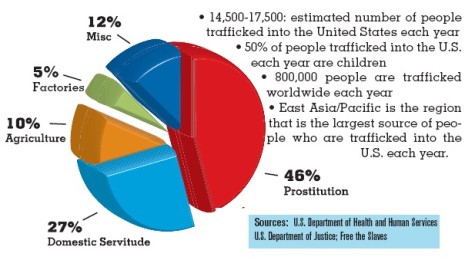
Social stigma is often a factor in the disregard for the issue. “It’s often difficult to talk about an issue that can involve the word sex or prostitution,” explained Weinert. However, it is important to note that this issue isn’t hopeless. Choosing to buy products that are free of slave labor and encouraging elected officials to take action are simple ways to demand change.
“People should get involved because it matters,” said Weinert. “Two years ago, I had never heard of human trafficking and even then I would have felt powerless to combat it. Having a club and raising awareness is an important first step to take. Starting a club has made me feel more empowered. I have a voice and I can make a difference, especially in our community.”
Her passion has spread to other group members who hope that more people will realize the power they have to affect change. AMS member Sunaya Padmanabhan wants the group to grow further so it can increase its scope and influence. “In the future, we are hoping to organize the community, and get adults involved, expanding it beyond high school. This is just the beginning,” she said.
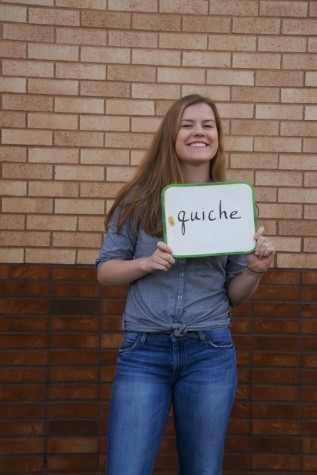
Hannah Kloos is a senior, and feels weird and wonderful about that statement. As online copy editor for Zephyrus, she spends a significant amount of time...

